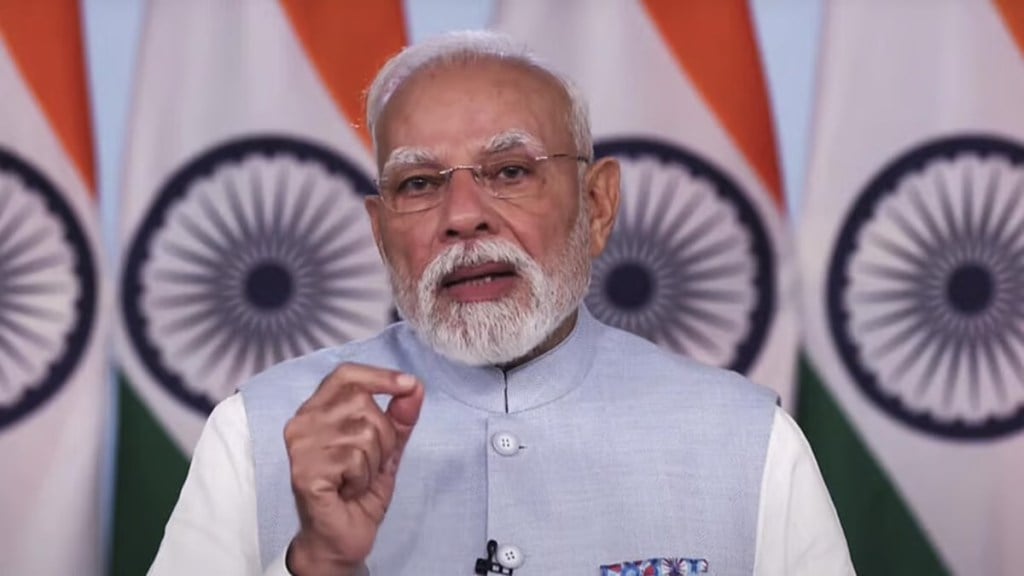Setting the tone for India’s people-centric approach to artificial intelligence (AI), Prime Minister Narendra Modi on Thursday said that “AI means All Inclusive”. He was speaking at the Global Fintech Fest 2025 in Mumbai.
In his address that blended technological ambitions with global solidarity, the prime minister said: “India’s success in technology is not just for its own benefit, it is a beacon of hope for the Global South.”
“India not only shares technology but also helps nations build it—not as ‘aid,’ but as collaboration rooted in integrity and purpose,” he added.
Forging global bridges
Speaking on the occasion, UK Prime Minister Keir Starmer also highlighted India’s global significance as the world’s largest and fastest-growing democracy, calling it “the promise of the future”. He showcased the UK’s commitment to investing in India, with 126 British businesses forming the largest UK delegation to India in over a decade, including major players like HSBC, Revolut and Standard Chartered, expanding across Indian cities and fintech hubs like GIFT City.
At the same time, Indian fintech leaders such as Paytm, Razorpay and Cred are planning to invest in the UK, drawn by its trillion-dollar tech sector, deep capital markets and streamlined regulatory environment.
Starmer positioned the UK as India’s gateway to global scale, citing collaborative successes like the Oxford, AstraZeneca and Serum Institute of India vaccine partnership.
“The UK brings research and global finance experience, and India brings scale and talent—together, they open gates of opportunity for the world,” said Modi, adding that, “India-UK bilateral trade is currently at $56 billion and by 2030, we want to double it. However, I am sure this target will be achieved before time.”
The UK-India fintech corridor aims to accelerate startup innovation, while collaboration between the London Stock Exchange and GIFT City promises deeper financial integration under the free trade agreement (FTA).
India’s trust layer
Meanwhile, PM Modi also drew a contrast between global debates on AI safety and India’s proactive stance on AI impact. “While the world debates trust and safety in AI, India has already built a trust layer through its digital systems,” he said.
With the AI Impact Summit hosted in India following the UK’s AI Safety Summit, the two democracies are shaping a shared vision for ethical, scalable, and inclusive AI.
Under the India AI Mission, the country is building high-performance computing infrastructure to empower innovators and startups. “Our goal is to make the benefits of AI available in every district and every language,” said Modi, adding the importance of indigenous models, multilingual deployment, and ethical governance. India’s trust layer built through Aadhaar, UPI, and public digital platforms already provides a robust foundation for AI integration across financial services.
The PM underscored that India’s digital transformation is rooted in inclusion. “Earlier, banking was a privilege; now, digital technology has made it a tool of empowerment,” he noted.
With over 20 billion digital transactions monthly, worth more than `25 lakh crore, India accounts for half of the world’s real-time digital payments. Platforms like Bharat QR, GeM, and the Aadhaar-enabled Payment System have become the backbone of this transformation.
India’s fintech architecture is also expanding through open ecosystems like ONDC (Open Network for Digital Commerce) and OCEN (Open Credit Enablement Network), which are unlocking market access and credit for MSMEs. “India has democratised technology, making it accessible to every citizen, in every region,” said Modi, adding, “Let us build a fintech world where technology, people, and the planet all thrive together, where innovation means not just growth, but goodness, where finance means not just numbers, but human progress.”


